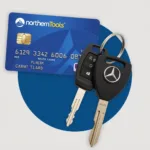The automotive world is rapidly evolving, with connected cars becoming increasingly prevalent. This interconnectedness has significant implications for diagnostics, requiring advanced scan tools to effectively understand and address vehicle issues. This guide will delve into the evolving relationship between the connected car and scan tools, exploring the challenges and opportunities presented by this technological shift.
The Rise of the Connected Car and its Impact on Diagnostics
Connected cars, equipped with telematics and constant internet access, generate vast amounts of data. This data offers valuable insights into vehicle performance, driver behavior, and potential problems. However, it also necessitates a new approach to diagnostics. Traditional OBD-II scanners, while still relevant, are no longer sufficient to fully diagnose these complex systems. The sheer volume of data, the intricate network of interconnected systems, and the increasing sophistication of software require a new generation of scan tools. These tools must be capable of handling big data, interpreting complex algorithms, and communicating with multiple vehicle systems simultaneously.
Navigating the Complexities of Connected Car Diagnostics
The increased complexity of connected car systems presents several challenges for diagnostics. Firstly, diagnosing issues requires a deeper understanding of software and network communication protocols, beyond traditional mechanical expertise. Secondly, securing vehicle data against cyber threats is paramount, as connected cars are vulnerable to hacking and data breaches. Scan tools, therefore, must incorporate robust security measures to protect sensitive information. Finally, the sheer variety of connected car systems and data formats requires scan tools to be highly adaptable and versatile. car station toy tools are great for kids who want to learn about cars, but real-world diagnostics require professional-grade tools.
What are the key features of modern scan tools for connected cars?
Modern scan tools must possess several key features to effectively diagnose connected cars. These include:
- Advanced data analysis capabilities: The ability to process and interpret large volumes of data from various vehicle systems.
- Wireless connectivity: Seamless communication with the vehicle’s onboard systems through Wi-Fi or Bluetooth.
- Cloud integration: Access to online databases and software updates for enhanced diagnostic capabilities.
- Cybersecurity features: Robust encryption and authentication protocols to protect vehicle data.
- OEM-specific functionalities: Support for proprietary diagnostic protocols used by different car manufacturers.
“The connected car era demands a paradigm shift in diagnostic thinking,” says automotive expert, Dr. Amelia Carter, Ph.D. in Automotive Engineering. “Mechanics and technicians need to embrace the digital realm and become proficient in using advanced scan tools and software.”
The Future of Connected Car and Scan Tools
The future of connected car diagnostics lies in the seamless integration of scan tools with cloud-based platforms and AI-powered diagnostic software. These platforms will provide access to vast repositories of vehicle data, diagnostic algorithms, and expert knowledge, enabling faster and more accurate diagnoses. Predictive diagnostics, leveraging AI and machine learning, will anticipate potential issues before they occur, minimizing downtime and enhancing vehicle reliability. northwell care management tool citrix demonstrates how effective integrated systems can be in managing complex data. Similarly, the integration of scan tools with the connected car ecosystem will revolutionize the way we maintain and repair vehicles.
How can independent workshops stay competitive in the connected car era?
Independent workshops can remain competitive by investing in advanced scan tools, training their technicians on the latest diagnostic techniques, and partnering with data providers and software developers. This will allow them to offer the same level of service and expertise as dealerships, catering to the growing number of connected car owners.
“The biggest challenge for independent workshops is keeping pace with the rapid evolution of technology,” notes automotive industry consultant, Mr. David Miller. “Investing in training and the right tools is crucial for their survival.” best emergency escape tools cars are essential, but so are the tools for diagnosing the increasingly complex systems within these vehicles. advanced care management tool and metric tools for asian cars highlight the specialized tools required for different areas.
Conclusion
The connected car revolution is transforming the automotive landscape, and with it, the field of diagnostics. By embracing advanced scan tools and staying abreast of the latest technological advancements, mechanics and workshops can effectively navigate the complexities of connected car diagnostics, ensuring the safety, reliability, and performance of these increasingly sophisticated vehicles. Understanding the relationship between the connected car and scan tools is no longer a luxury but a necessity in the modern automotive world.
FAQ:
- What is a connected car?
- Why are advanced scan tools necessary for connected cars?
- What are the key features of a modern scan tool?
- How can independent workshops adapt to the connected car era?
- What is the future of connected car diagnostics?
- What are the security implications of connected car diagnostics?
- Where can I find reliable information on connected car diagnostics?
Need help with your car diagnostics? Contact us via WhatsApp: +1(641)206-8880, Email: [email protected] or visit us at 910 Cedar Lane, Chicago, IL 60605, USA. Our customer service team is available 24/7.
